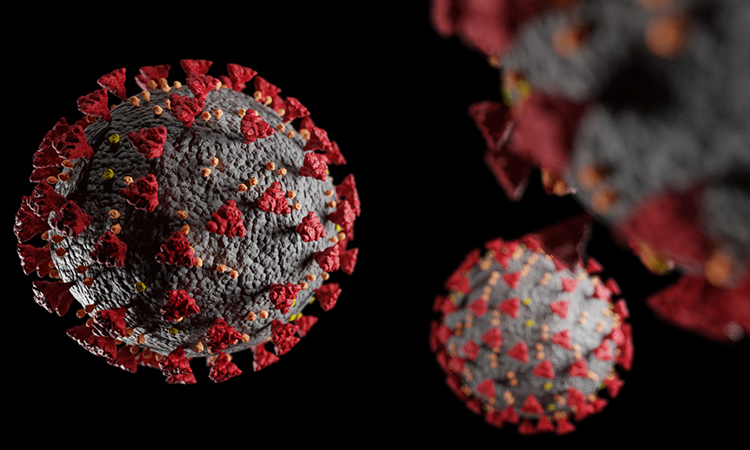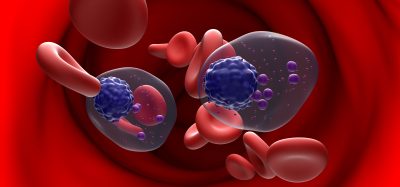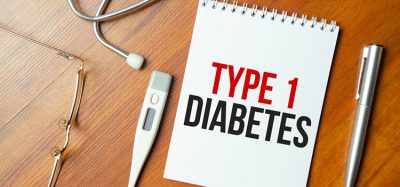Researchers suggest blocking factor D protein could combat SARS-CoV-2
Posted: 9 October 2020 | Victoria Rees (Drug Target Review) | No comments yet
A team has said that inhibiting the factor D protein could prevent SARS-CoV-2 from turning the immune system against healthy cells.


Researchers have suggested a new possible strategy to combat SARS-CoV-2, the virus causing the COVID-19 pandemic. They say blocking a protein that enables the virus to turn the immune system against healthy cells could protect people from the coronavirus. The study was conducted at Johns Hopkins Medicine, US.
The team believe that inhibiting the protein, known as factor D, also will curtail the potentially deadly inflammatory reactions that many patients have to the virus.
The researchers explain that it is already known that Spike (S) proteins on the surface of the SARS-CoV-2 virus are the means by which it attaches to cells targeted for infection. To do this, the S protein first uses heparan sulfate, a large, complex sugar molecule found on the surface of cells in the lungs, blood vessels and smooth muscle making up most organs. Facilitated by its initial binding with heparan sulfate, SARS-CoV-2 then uses another cell-surface component, the protein known as angiotensin-converting enzyme 2 (ACE2), as its doorway into the attacked cell.
The team discovered that when SARS-CoV-2 ties up heparan sulfate, it prevents factor H from using the sugar molecule to bind with cells. Factor H’s normal function is to regulate the chemical signals that trigger inflammation and keep the immune system from harming healthy cells. Without this protection, cells in the lungs, heart, kidneys and other organs can be destroyed by the defence mechanism nature intended to safeguard them.
“Previous research has suggested that along with tying up heparan sulfate, SARS-CoV-2 activates a cascading series of biological reactions – what we call the alternative pathway of complement (APC) – that can lead to inflammation and cell destruction if misdirected by the immune system at healthy organs,” said study senior author Dr Robert Brodsky. “The goal of our study was to discover how the virus activates this pathway and to find a way to inhibit it before the damage happens.”
The researchers say the APC is one of three chain reaction processes involving the splitting and combining of more than 20 different proteins – known as complement proteins – that usually gets activated when bacteria or viruses invade the body. The end product of this complement cascade, a structure called membrane attack complex (MAC), forms on the surface of the invader and causes its destruction, either by creating holes in bacterial membranes or disrupting a virus’ outer envelope. However, MACs also can arise on the membranes of healthy cells. Fortunately, humans have a number of complement proteins, including factor H, that regulate the APC, keep it in check and therefore, protect normal cells from damage by MACs.
In a series of experiments, the team used normal human blood serum and three subunits of the SARS-CoV-2 S protein to discover exactly how the virus activates the APC, hijacks the immune system and endangers normal cells. They discovered that two of the subunits, called S1 and S2, are the components that bind the virus to heparan sulfate – setting off the APC cascade and blocking factor H from connecting with the sugar – and in turn, disabling the complement regulation by which factor H deters a misdirected immune response.
In turn, the researchers say, the resulting immune system response to chemicals released by the lysing of killed cells could be responsible for the organ damage and failures seen in severe cases of COVID-19.
The research team found by blocking another complement protein, known as factor D, which works immediately upstream in the pathway from factor H, they were able to stop the destructive chain of events triggered by SARS-CoV-2.
“When we added a small molecule that inhibits the function of factor D, the APC was not activated by the virus S proteins,” Brodsky said. “We believe that when the SARS-CoV-2 S proteins bind to heparan sulfate, it triggers an increase in the complement-mediated killing of normal cells because factor H, a key regulator of the APC, cannot do its job.”
Brodsky added that cell death and organ damage from a misdirected APC associated with factor H suppression is already known to occur in several complement-related human diseases, including age-related macular degeneration and atypical hemolytic uremic syndrome (aHUS).
So, the team hope that their work will encourage more study into the potential use against COVID-19 of complement-inhibiting drugs already in the pipeline for other diseases.
The study is published in Blood.
Related topics
Disease Research, Drug Targets, Protein, Proteomics, Research & Development, Target Molecule, Targets, Therapeutics
Related conditions
Covid-19
Related organisations
John Hopkins University
Related people
Dr Robert Brodsky








